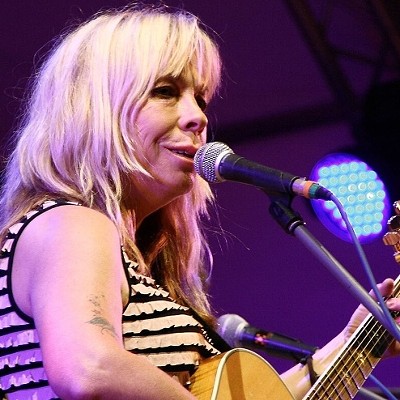I am the problem with modern country music.
Country music, broadly speaking, does nothing for me on an emotional level. Growing up, I'd like a country song every now and then – a “Why Haven't I Heard From You” here, a “Pocket of a Clown" there – but it was ultimately music that just doesn't speak to me. When Josh Thompson sings about “John Wayne, Johnny Cash and John Deere,” I roll my eyes in the same way I assume most people would roll their eyes if I wrote a song about Terrence Malick, Kanye West and Native Instruments.
But I love bro country. It's pretty much the only form of the genre I consume when Kacey Musgraves doesn't have a new album out. It's silly and stupid and totally inauthentic, which I think are all pretty great reasons to listen to any catchy song. Bro country is the Rick Ross of country music, and I don't think that's a bad thing.
As a music critic, I understand the desire, as it were, to defend music against inauthenticity. Art is supposed to be something that is pure and have meaning and so on and so forth. It's a battle that is fought in all spheres of music, from hardcore punk to mainstream hip-hop. If something fake rises to the surface — hi, Iggy Azalea! — there will be someone with a blog and 1,000 words to call that person out on it.
But I wonder if the battle for the authentic soul of country music misses the greater point of what it means to be a younger country music fan in 2015. Country music is big business, and country acts still get their amount of shine on the charts, but I think that as pop music has become a broader genre by incorporating more hip-hop and electronic music, genres like country music have been marginalized.
Consider this: In the year 2000, Faith Hill had the top song of the year, Lonestar had a song in the Top 10, and LeAnn Rimes, George Strait, Tim McGraw and the Dixie Chicks all made showings on the chart, not to mention the country-friendly rock of Kid Rock, 3 Doors Down and Train. Compare that to the 2015 chart, where you have Sam Hunt, Little Big Town and Kelly Clarkson's unofficial rework of Jimmy Eat World's “The Middle.” Remember when you could count Taylor Swift among your own?
The point I'm going for here is that kids these days, the people who the industry panders to the most, are exposed to a lot of different sounds. This is not a good thing or a bad thing, but it is a thing. And if this form of country music comes along that has some 808s in the mix and references Lil Wayne, well, it might not be authentic to the artists but it probably hits closer to home than whatever else is coming out of Nashville these days.
Do those fans deserve “better”? Maybe. I mean, I acknowledge that Florida Georgia Line is terrible, but they're not terrible because of the genre they're in.
Make no mistake, there are fair criticisms of bro country, even if those criticisms are shared across genre boundaries. Bro country turns women into objects because pretty much all music turns women into objects or makes them devils, depending on whether the song's protagonist is in love or not. Bro country is formulaic, because when the industry finds something that works, it beats it into the ground.
I think the good news is that as we get more progressive as a society, in the long arc of history, things will get better. There will be room for hip-hop-influenced country music that sees women as humans and not accessories, and maybe thinks that not all parties have to happen out in the backwoods. But it takes time.
But I think it's a good thing, overall, that bro country exists. I think that the cultural melting-pot aspect of it has value, and I think that the genre is laying groundwork for something better. Plus, it may be the gateway to better country music for younger fans (I'm told good country music is a thing that still exists). It would be silly to handwave away the problematic side of it in the name of fun, which is not my intent. I just think that there's value, sometimes, in looking at what authenticity means, and when you think about it that way, there's nothing more authentic than problematic social views. But now that I know that I love big beats and banjo, I look forward to seeing if we can get that without all the crap that mucks up the (pasture) party.
Support Us
Houston's independent source of
local news and culture
account
- Welcome,
Insider - Login
- My Account
- My Newsletters
- Contribute
- Contact Us
- Sign out
[
{
"name": "Related Stories / Support Us Combo",
"component": "11591218",
"insertPoint": "4",
"requiredCountToDisplay": "4"
},{
"name": "Air - Billboard - Inline Content",
"component": "11591214",
"insertPoint": "2/3",
"requiredCountToDisplay": "7"
},{
"name": "R1 - Beta - Mobile Only",
"component": "12287027",
"insertPoint": "8",
"requiredCountToDisplay": "8"
},{
"name": "Air - MediumRectangle - Inline Content - Mobile Display Size 2",
"component": "11591215",
"insertPoint": "12",
"requiredCountToDisplay": "12"
},{
"name": "Air - MediumRectangle - Inline Content - Mobile Display Size 2",
"component": "11591215",
"insertPoint": "4th",
"startingPoint": "16",
"requiredCountToDisplay": "12"
}
,{
"name": "RevContent - In Article",
"component": "12527128",
"insertPoint": "3/5",
"requiredCountToDisplay": "5"
}
]
KEEP THE HOUSTON PRESS FREE...
Since we started the Houston Press, it has been defined as the free, independent voice of Houston, and we'd like to keep it that way. With local media under siege, it's more important than ever for us to rally support behind funding our local journalism. You can help by participating in our "I Support" program, allowing us to keep offering readers access to our incisive coverage of local news, food and culture with no paywalls.
Cory Garcia is a Contributing Editor for the Houston Press. He once won an award for his writing, but he doesn't like to brag about it. If you're reading this sentence, odds are good it's because he wrote a concert review you don't like or he wanted to talk pro wrestling.
Contact:
Cory Garcia
Trending Music
- The Way it Was: Rage Against the Machine, Evil Empire
- Top 10 Butt-Rock Bands of All Time
- The 10 Most Overplayed Songs at Mexican Weddings, Texas Edition
-
Sponsored Content From: [%sponsoredBy%]
[%title%]

Don't Miss Out
SIGN UP for the latest
Music
news, free stuff and more!
Become a member to support the independent voice of Houston
and help keep the future of the Houston Press FREE
Use of this website constitutes acceptance of our
terms of use,
our cookies policy, and our
privacy policy
The Houston Press may earn a portion of sales from products & services purchased through links on our site from our
affiliate partners.
©2024
Houston Press, LP. All rights reserved.





